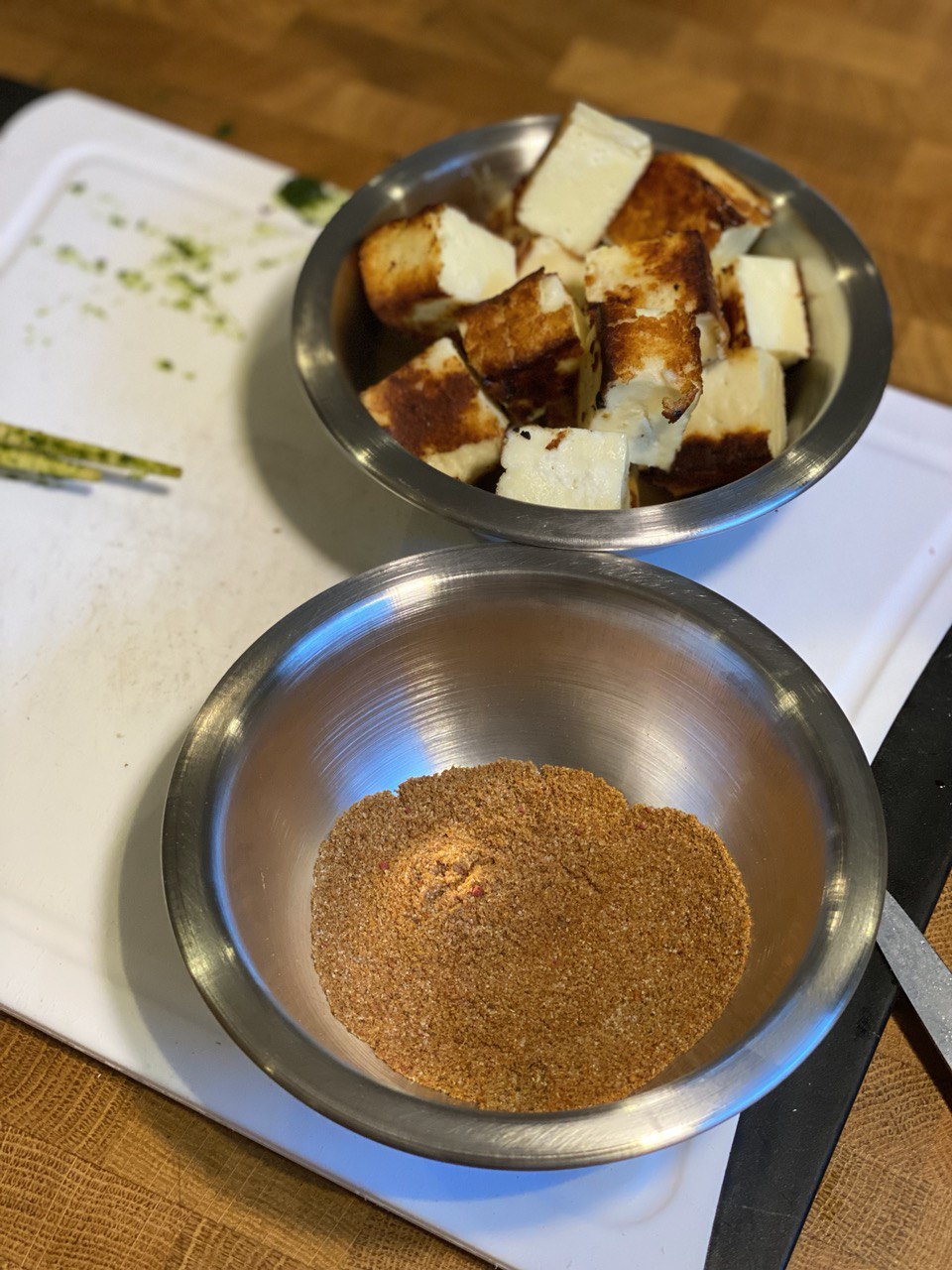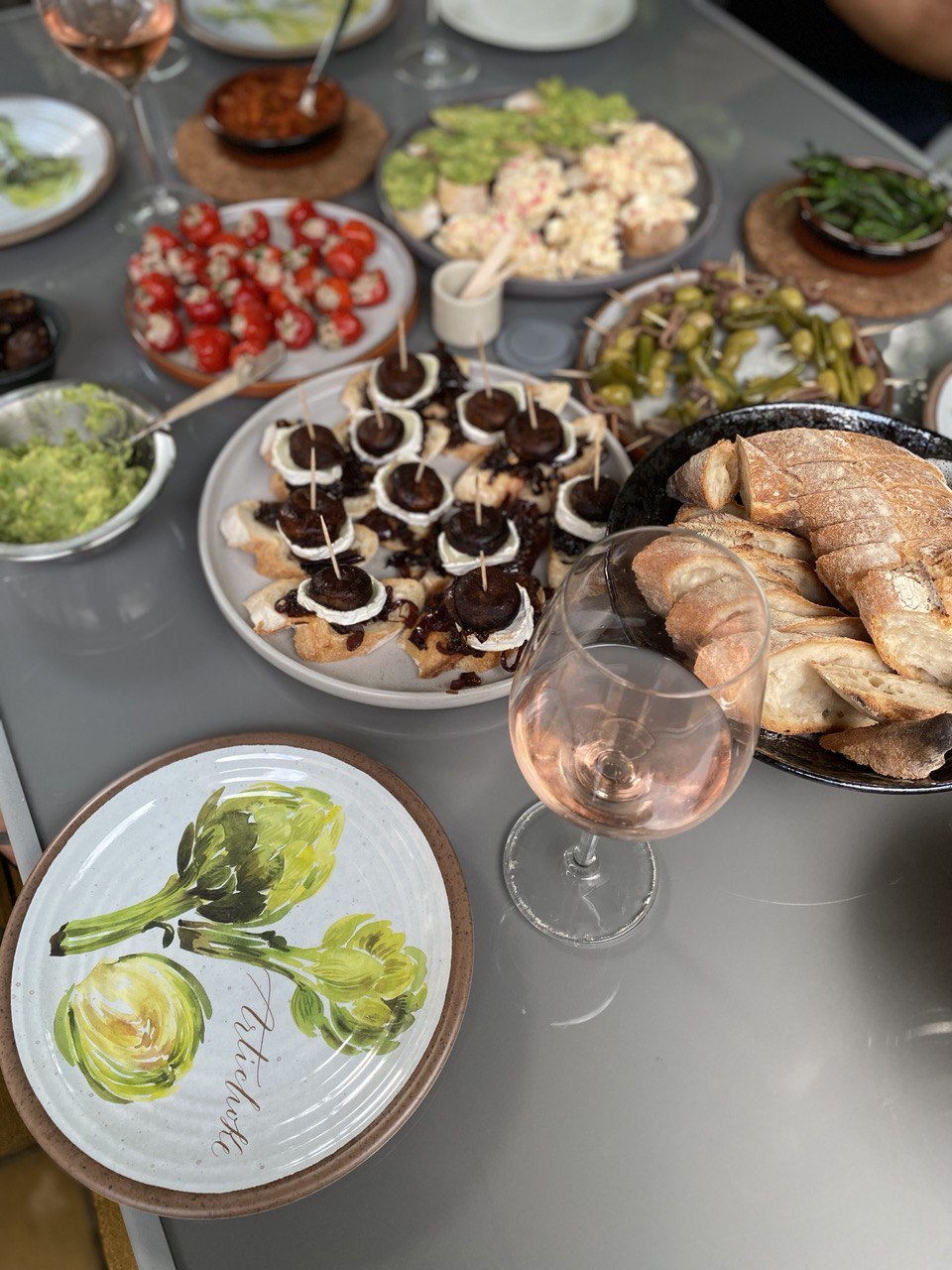Tuesday Triage #53
- TUESDAY TRIAGE #53 by Vadim Drobinin
- On summer
- Things I enjoyed reading
- 1. A Haunting New Documentary About Anthony Bourdain by @hels
- 2. How Many Numbers Exist? by @nattyover
- 3. Pinched ink: is it wrong to steal a tattoo? by James Shackell
- 4. The unreasonable effectiveness of just showing up everyday by Kishore Nallan
- 5. Airbnb and neighborhood crime by Laiyang Ke, Daniel T. O’Brien, and Babak Heydari
- 6. Master’s Degrees Are the Second Biggest Scam in Higher Education by @JHWeissmann
- 7. The Failures That Made Ian Fleming by Scott Bradfield
- 8. Restoring your privacy costs money, which makes it a marker of class by @mpesce
- 9. How To Learn Stuff Quickly by @joshwcomeau
- 10. When Buddhism Goes Bad by Dan Lawton
- Things I didn't know last Tuesday
- 1. Airplanes don't carry oxygen for the oxygen masks
- 2. The Banknote Building
- 3. Arabic numerals in banking
- 4. Andreas Mihavecz
- 5. Bouba/kiki effect
- 6. Ramadan in Burj Khalifa
- 7. Euscorpius flavicaudis
- 8. There are three Channel tunnels
- 9. Glossary of names for the British
- 10. Scotland's national animal
- Book of the week
- Thank you and see you in a week!
TUESDAY TRIAGE #53
by Vadim Drobinin ¶
Your weekly crème de la crème of the Internet is here!
20.07.2021 (read in browser)
On summer ¶
Summer is by far my least favourite time of the year.
I don't like all things flying, unless they're edible. I prefer swimming in a (ideally empty 50m) pool to any beach in the world. I like the longer days but I definitely miss better sleep.
But most of all I don't enjoy any weather above 20C, so a joke of a summer we have for the last week is far ideal.
On the other hand, if that's the price one has to pay for being able to fly around and have a vacuum chamber running on electricity without ever stopping, I am happy to pay.
First I will have to pay for an AC though, just in case it continues through August.
Thinking of summer activities, these warmest days of the month so far we have spent doing all things normal people do: cooking a lot, and mostly cooking something hot and with lots of burners and ovens in use.
Namely, chicken tikka masala with naans:

And some fried paneer:

That was turned into a kale twist on palak paneer (because Sasha grew lots of kale this year):

And also we had some pintxos with friends. Got really excited about the chance to pickle guindilla peppers for Gilda (instead of waiting for a month just compressed them in a vacuum chamber at 99%).

To wrap it up we baked some pizzas in a wooden oven:

So there is a chance that the temperature everywhere else was actually lower than the one I am complaining about.

Also today is exactly 365 days since the first edition of the newsletter. I already marked the 50th edition because it's a nicer number but the actual year is only now. Yay!
Things I enjoyed reading ¶
1. A Haunting New Documentary About Anthony Bourdain by @hels ¶
Despite being a documentary about one of the greatest chefs, it actually raised another question – and maybe even a more important one: to what extent could one utilise technologies to revive memories, emotions, or even voice and appearance of passed away people?
In a world of computer simulations and deepfakes, a dead man’s voice speaking his own words of despair is hardly the most dystopian application of the technology. But the seamlessness of the effect is eerie. “If you watch the film, other than that line you mentioned, you probably don’t know what the other lines are that were spoken by the A.I., and you’re not going to know,” Neville said. “We can have a documentary-ethics panel about it later.”
I wouldn't mind if someone were to train a bot based on my messages, essays, and posts once I am gone, as it would be a great legacy to have, but also a task pretty much impossible without gaining the archive of all the messages I ever produced, both publicly and privately. The latter is hard to obtain, but might be feasable if there were a trustworthy company that would handle the model training and provide the interface for a fee.
The documentary about Bourdain is good too; it would be as good without those three morally questionable quotes too though.
2. How Many Numbers Exist? by @nattyover ¶
This is probably the first time I encounter such a simple explanation of carinality, real numbers, and difficulties we face when try to compare their amounts.
Infinite sets of numbers mess with our intuition about size, so as a warmup, compare the natural numbers
{1, 2, 3, …}with the odd numbers{1, 3, 5, …}. You might think the first set is bigger, since only half its elements appear in the second set. Cantor realized, though, that the elements of the two sets can be put in a one-to-one correspondence. You can pair off the first elements of each set (1 and 1), then pair off their second elements (2 and 3), then their third (3 and 5), and so on forever, covering all elements of both sets. In this sense, the two infinite sets have the same size, or what Cantor called “cardinality.”
Every time I read something akin to it, I wonder if I find it very simple because I was already taught the same things, but in a terribly harder way? Would I find the topic as simple to understand without that previous luggage of knowledge?
We will never know.
3. Pinched ink: is it wrong to steal a tattoo? by James Shackell ¶
It's 2021 and people somehow noticed that there are folks with suspiciously similar tattoos out there in the world.
But all tattoos represent the person you were at the time they were inked – they’re like geological strata of your life, the different layers that separate You Then from You Now. And unfortunately one of those layers was being 25 and a bit of a nob.
I’m a tattoo thief, and I’m not proud of it.
Personally I don't find it to be a big deal. My tattoes probably already made it to Pinterest, Instagram, yadda-yadda, and got eventually copied, maybe even without changes, but as far as I am concerned they tell a rather unique story, the one only I can fully converse (or change to my liking over years), and there is not much point in them for anyone else (except being spectacular pieces of art, obviously).
Would I steal a tattoo? Probably not, but that's how I roll: get a bag of references and go to a tattoo master to get a draft of something that combines the best parts of multiple drawings into a single one using a style I want. But I wouldn't be ashamed to come with a single drawing one day, if it would be that good. Luckily any good master will change it anyway to make more personal.
4. The unreasonable effectiveness of just showing up everyday by Kishore Nallan ¶
I am very close to blame the idea here on the survivorship bias, but can't really do it without at least trying the approach myself.
With no self-imposed time pressure, I was able to focus on just one thing: showing up every day and writing some code. Some features took an hour to implement, some took several hours spread over days, some even stretched into weeks, but it did not matter because there were no deadlines of any sort.
Probably "showing up everyday" is a good way to commit to perseverance – that'd explain the rest.
5. Airbnb and neighborhood crime by Laiyang Ke, Daniel T. O’Brien, and Babak Heydari ¶
I am surprised there were no similar papers before (at least to my knowledge), but seems like there is indeed some relation between the number of short-term rentals in an area and its crime rate.
We find evidence that increases in Airbnb listings–but not reviews–led to more violence in neighborhoods in later years. This result supports the notion that the prevalence of Airbnb listings erodes the natural ability of a neighborhood to prevent crime, but does not support the interpretation that elevated numbers of tourists bring crime with them.
Should it affect one's choice when looking for a flat? Probably not. Does it require further investigation? That's for sure.
6. Master’s Degrees Are the Second Biggest Scam in Higher Education by @JHWeissmann ¶
As someone who managed to settle in an industry where Master's degrees just don't make sense, I could never understand why there are certain occupations that just do not accept people with Bachelor's or lower levels.
But it also pointed to a more fundamental, troubling development in the world of higher education: For colleges and universities, master’s degrees have essentially become an enormous moneymaking scheme, wherein the line between for-profit and nonprofit education has been utterly blurred. There are, of course, good programs as well as bad ones, but when you scope out, there is clearly a systemic problem.
These days a degree doesn't represent the characteristics companies used to look out for, so a diploma itself feels rather redundant, but that might take even more decades to resolve.
7. The Failures That Made Ian Fleming by Scott Bradfield ¶
While I do disagree with the main idea of the article that implies that the good old James Bond is now too old and is not as good anymore, I actually enjoyed reading about the author himself.
Apparently Ian Fleming worked in intelligence too, and yet had a very unremarkable past.
Fleming was a careful, objective writer who never took himself too seriously. But eventually he grew so attached to his singular creation that it grew hard to tell them apart. He posed for author photos with a Beretta. He assigned details of his life to Bond—such as his birthday and his Scottish ancestry. He referred to himself as Bond’s “biographer” and even released press statements that made it hard to tell where the creator ended and his fictional iteration began.
At least his legacy is living through centuries now (as far as I am concerned, not only via the Vesper cocktail).
8. Restoring your privacy costs money, which makes it a marker of class by @mpesce ¶
An unusual angle to look at the privacy question:
For the very rich – Gates and Musk and Bezos and their ilk – all the money in the world can't buy privacy. Instead, they'll use security to keep themselves safe, and – as Bezos did when confronted with blackmail – turn the tables on those prying eyes. Money can't buy everything, but it can fund revenge.
I guess that's still a chicken and egg problem of those who can invade someone's privacy and those keen to protect it, but different layers of society do face it differently.
9. How To Learn Stuff Quickly by @joshwcomeau ¶
Despite being a yet another attempt at learning silver bullet, there are certain things I'd second:
Things never go smoothly when it comes to software development. Inevitably, we'll hit a rough patch where the code doesn't do what we expect.
This can either lead to a downward spiral—one full of frustration and self-doubt and impostor syndrome—or it can be seen as a fantastic learning opportunity. Nothing helps you learn faster than an inscrutable error message, if you have the right mindset.
Learning is not a sprint, it's a marathon, and certains parts of the path aimed at testing one's endurance while others are purely about a technique. Once you figure it out, learning new things becomes great again.
10. When Buddhism Goes Bad by Dan Lawton ¶
Something I already referred to in the past: mindfulness practices can hurt, and should be approached with caution.
But doing anything, even a "vanilla" guideded meditation is still better than nothing.
The terrain of fractured, disruptive and altered states of consciousness has often been explored in Buddhist teachings through the centuries, but when these practices made their journey into Western culture, a sufficient understanding of the downsides of meditation was lost in transit.
So hopefully it won't discourage you from being a bit more present.
Things I didn't know last Tuesday ¶
1. Airplanes don't carry oxygen for the oxygen masks ¶
I was 100% confident that airplanes stock up oxygen tanks just above passengers to provide support for their masks. They don't!
If the pressure in the cabin changes and masks drop, tugging the mask causes a pin to ignite a smal explosion which combines sodium chlorate and potassium perchlorate to make oxygen.
The reaction goes on until the chemicals are exhausted. So, once the mask is pulled, it can provide breathable oxygen for 12-20 minutes, depending on the type and size of the oxygen generator. At any rate, you only need the ‘mask oxygen’ until the plane descends to 10,000 feet, as the surrounding air will become breathable again from that point on.
That's so cool, I never even though of it.
2. The Banknote Building ¶
Check out that building on outskirts of Lithuania's second city, Kaunas:
The 10-story building was built to celebrate Lithuania joining the European Union in 2004. It was designed by Lithuanian architect Rimas Adomaitis with construction completed in 2008. The building provides office space for banks and other businesses and is also used as a conference hall.

3. Arabic numerals in banking ¶
In 13th century Florence banned Arabic numerals for bankers, and then fifty years later they also banned zero. However, bankers couldn't bother with Roman numerals so got creative:
This did not inhibit the practical minded European merchants or progressive scholars, who just went ahead using Indo-Arabic numerals with Zero because it wa sso much easier. However, when Church authorities unreasonably put restrictions the bankers simply created duplicate sets of books, one to show the chirch, one to do calculations in.
Not much has changed since, although double sets of accountant books are now illegal.
4. Andreas Mihavecz ¶
Must be one of the scariest World Guiness records to date:
On 1 April 1979, the then 18-year-old bricklayer's apprentice was mistakenly put into custody in a holding cell for being a passenger in a crashed car and completely forgotten about by the three policemen responsible for him. Each of them thought that the two others had already freed Mihavecz.
Imagine the shock of a guard who found him in there weeks later and rescued.
5. Bouba/kiki effect ¶
Think about two word, "bouba" and "kiki". And now try to choose which one describes which picture:
The bouba/kiki effect is a non-arbitrary mapping between speech sounds and the visual shape of objects. It was first documented by Wolfgang Köhler in 1929 using nonsense words. The effect has been observed in American university students, Tamil speakers in India, young children, and infants, and has also been shown to occur with familiar names.
Apparently it works in a very similar fashion for many people.
6. Ramadan in Burj Khalifa ¶
Burj Khalifa is so tall, folks at the top floors can see the sun for a few minutes after it was set for those at the ground level, so the Dubai clerics had to change Ramadan rules for those living there:
On the higher floors, the sun can still be seen for several minutes after it has set at ground level. This has led Dubai clerics to rule that those living above the 80th floor should wait 2 additional minutes to break their Ramadan fast, and those living above the 150th floor, 3 minutes.
How does it work for those in the space though?
7. Euscorpius flavicaudis ¶
Attention, there are scorpions in the UK:
...it has also been accidentally introduced into the United Kingdom at Sheerness Dockyard on the Isle of Sheppey, Kent, and parts of east London. The introduction is thought to have taken place in the early 19th century via a shipment of Italian masonry. The resulting colony, numbering 10,000 to 15,000 individuals in 2013, is the northernmost population of scorpions outside the Americas

Luckily judging by the records they're very afraid of people and rarely sting. Also not that poisonous.
8. There are three Channel tunnels ¶
I could've guessed but there is not a single tunnel but three instead: two rail tunnels to travel between England and France, and a narrow service tunnel with service vehicles.
The three tunnels, each 50km long, were bored at an average 40m below the sea bed, and link Folkestone in Kent to Coquelles in Pas-de-Calais.
That Folkestone must be a lovely town then.
9. Glossary of names for the British ¶
There is a carefully guarded collection of names for the British on Wikipedia.
This glossary of names for the British include nicknames and terms, including affectionate ones, neutral ones, and derogatory ones to describe British people, and more specifically English, Welsh, Scottish and Northern Irish people.
I've seen some of them before but didn't know it's a thing on such a global scale. I guess that's the price countries pay for conquering almost everyone else eventually.
10. Scotland's national animal ¶
Who'd have thought that Scottish national animal is not a bottle of whisky? I am a tad disappointed to be honest.
Unicorns have been linked to Scotland for centuries. While the animal is mythological, the ideals it represents are what make it a perfect fit as the national animal for Scotland, and because like this proud beast – Scots would fight to remain unconquered.
It's also chained on their coat of arms, because while unicorns were (are) the strongest animals out there, Scottish kings were even stronger.
Book of the week ¶
This week I was reading Neville Isdell's Inside Coca-Cola, and despite being (mostly) about the sometimes illegal ways the company managed to conquer the world, occasionally it just reads as a hilarious collection of anecdotes from someone who is old enough not to care about others' opinions:
The day after the opening of McDonald’s, Don Keough and I had a meeting at the Kremlin with the minister of foreign economic affairs. It was 7:30 A.M. “We have to have a toast,” the minister said, bringing out brandy from his desk drawer for a round of toasts before breakfast.
I developed a survival system. Everyone during the toasts had water as a chaser. I would ask for a Coke as well. I would knock back the first two shots of vodka in the normal fashion. From then on, I would spit most of the vodka back into the water glass, chasing the toast with my Coke to make it appear normal. I was able to essentially drink less than half the volume of the others. I remember one Russian complimenting me, “You can really drink your vodka. You’re strong!”
This is a neat trick actually. Maybe that's why you won't see Russians chasing the vodka with water anymore – they kept the tradition only for pure ethanol.
That being said, the book is more of a funny story than a guide to building a multibillion corporation. Still highly recommend though!
Thank you and see you in a week! ¶
If you have any questions, or want to suggest a link for the next newsletter, please drop me a message on Twitter or reply to this email.
Cheers! 🍸